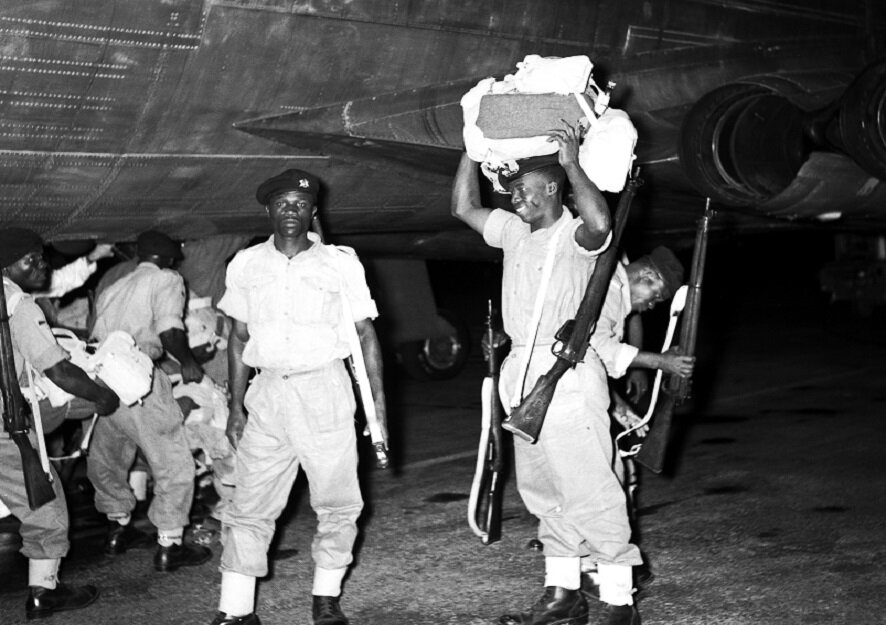Today in History, exactly 59 years ago, on April 28, 1961, 43 Ghanaian peacekeepers were killed in one of the United Nation’s (UN) deadliest missions by the Congolese army at Port Franqui, Kasai, Congo.

April 28, 1961, is definitely a day that Ghanaians, and not just Congolese, will remember. Ghana, then just a four-year-old independent nation, contributed soldiers to the UN’s aim of keeping the peace in Congo.
The United Nations Operation in the Congo (Opération des Nations Unies au Congo, or ONUC), which took place in the Republic of the Congo from July 1960 until June 1964, marked a milestone in the history of United Nations peacekeeping in terms of the responsibilities it had to assume, the size of its area of operation and the manpower involved.
Ghana has been contributing troops and police to UN peace operations since the early 1960s. Since their first participation in ONUC, over 80,000 Ghanaian military, police, and civilian personnel have served in various capacities in more than 30 UN missions.
In most of these operations there have been instances where weapons have been lost either through attacks by hostile armed elements or through careless mishandling of weapons by peacekeepers. A few examples will suffice, including losses of experienced peace keepers by UN troops from countries other than Ghana. By far, the highest number of weapons and ammunition lost by Ghanaian troops during peace operations occurred in the UN operations in the Congo.
This was during the Port Franqui shooting incident, which culminated in the unfortunate massacre of 43 Ghanaian peacekeepers (military personnel) and two of their British officers in April 28, 1961. Some of the Ghanaian troops were alleged to have drowned while attempting to escape the shooting.
The incident is reported to have happened when the Congolese interior minister, who was visiting Port Franqui on 27 April, publicly criticided the local Armée nationale congolaise (Congolese National Army, or ANC) forces of being anti-Lulua and a source of unrest in the ethnic conflict rocking northern Kasai. He threatened to have them disarmed by the UN forces if this did not change.
The following day, the ONUC garrison at Port Franqui was attacked by ANC troops, who thought it shared the pro-Lulua bias of the interior minister. Forty-seven UN troops (Ghanaian, Swedish, and British) were killed, some of them after they had been disarmed.
Ever since 43 Ghanaian peacekeepers were killed, Ghana’s willingness to partake in peacekeeping efforts has not been affected by its most unfortunate loss in international warfare. The country remains the UN’s most preferred peacekeeping partner on the continent.

